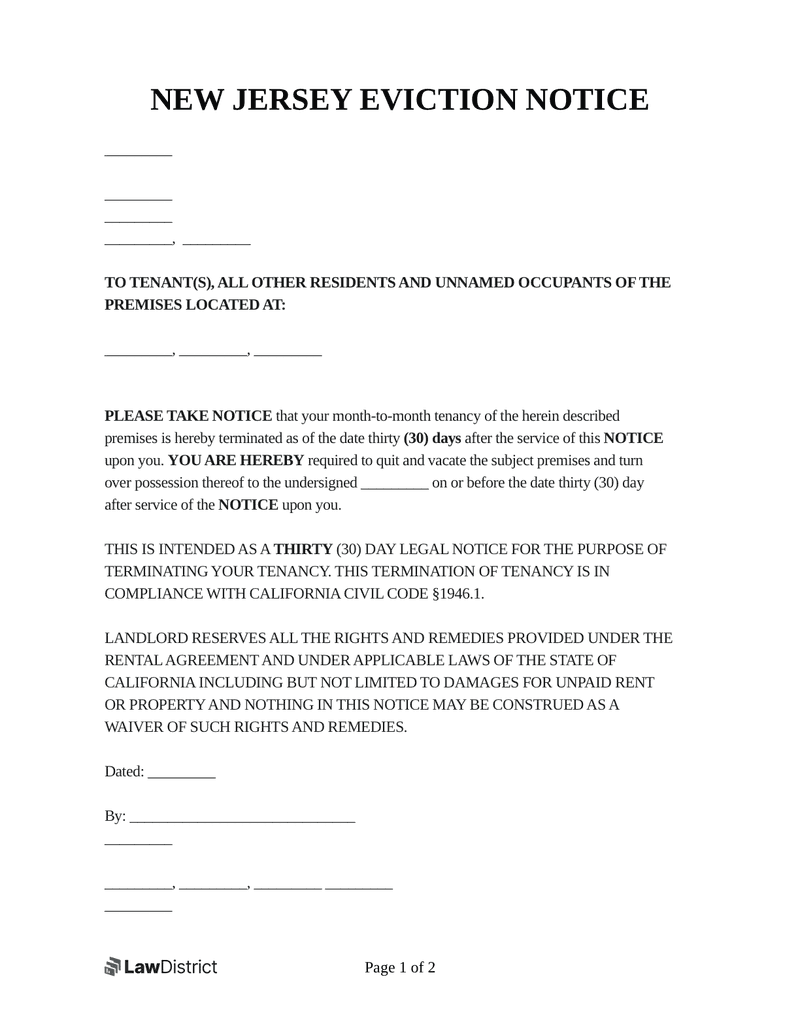How Long Does it Take to Evict a Tenant in New Jersey?
In many cases, a New Jersey eviction can be completed almost immediately. Once the eviction notice is served, the tenant will have between 3 - 30 days to vacate. If they comply, then the process will be over as soon as the notice period ends.
However, serving the eviction notice incorrectly can lead to delays in the process. Also, if the tenant refuses to vacate, eviction procedures can take somewhat longer. To go through the court process can take up to 6 months depending on how busy the district or housing court system is at the time.
